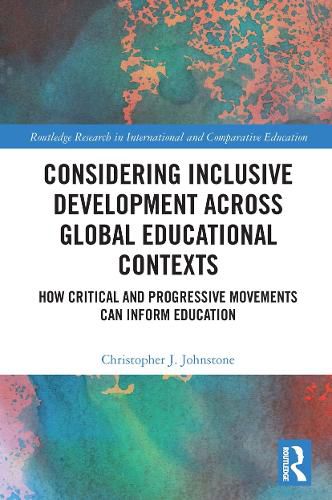Readings Newsletter
Become a Readings Member to make your shopping experience even easier.
Sign in or sign up for free!
You’re not far away from qualifying for FREE standard shipping within Australia
You’ve qualified for FREE standard shipping within Australia
The cart is loading…






This volume charts the rise of the concept of inclusive development and simultaneously recognizes its problematic implications as it shifts the focus of development work from efficiency to justice.
In response to increasing awareness that development projects can all too often lead to the exclusion of marginalized populations, Considering Inclusive Development across Global Educational Contexts sets out to foreground trends and experiences that can inform socially just approaches to development. Structured in three parts, the volume explores several educational themes - aid and development, the human-environment nexus, and economic redistribution. Chapters look in detail at how approaches in these areas can help or hinder inclusive educational development globally, and highlight representative, critical, and relational models of inclusive development that can more strongly inform education by/from broader development trends.
This timely volume will be of interest to academics, researchers, and post-graduate students in the fields of education development, inclusivity, and sustainable development. This book would also benefit graduate students and scholars in development education.
$9.00 standard shipping within Australia
FREE standard shipping within Australia for orders over $100.00
Express & International shipping calculated at checkout
This volume charts the rise of the concept of inclusive development and simultaneously recognizes its problematic implications as it shifts the focus of development work from efficiency to justice.
In response to increasing awareness that development projects can all too often lead to the exclusion of marginalized populations, Considering Inclusive Development across Global Educational Contexts sets out to foreground trends and experiences that can inform socially just approaches to development. Structured in three parts, the volume explores several educational themes - aid and development, the human-environment nexus, and economic redistribution. Chapters look in detail at how approaches in these areas can help or hinder inclusive educational development globally, and highlight representative, critical, and relational models of inclusive development that can more strongly inform education by/from broader development trends.
This timely volume will be of interest to academics, researchers, and post-graduate students in the fields of education development, inclusivity, and sustainable development. This book would also benefit graduate students and scholars in development education.